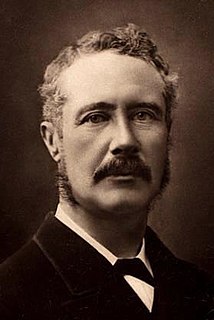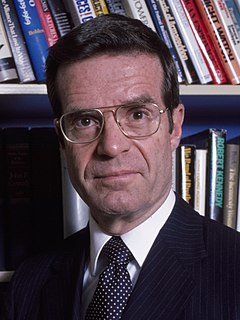A Quote by Richard Baxter
Our very business is to teach the great lesson of self-denial and humility to our people, and how unfit is it then that we should be proud ourselves!
Related Quotes
The biggest adversary in our life is ourselves. We are what we are, in a sense, because of the dominating thoughts we allow to gather in our head. All concepts of self-improvement, all actions and paths we take, relate solely to our abstract image of ourselves. Life is limited only by how we really see ourselves and feel about our being. A great deal of pure self-knowledge and inner understanding allows us to lay an all-important foundation for the structure of our life from which we can perceive and take the right avenues.
There's nothing wrong with being proud of America, believing that America can do great things. America can do great things, it has done great things. I think we have to have the self-awareness to recognize that the world is a very, very big place, that we could be a force for good things in the world, but we have to have the humility to recognize that sometimes even when we think we're acting from the best of motives our own idealism can be infected by self-interest. Other people in other countries can see it sometimes better than we can.
The lesson of the Federation should be that the lesson is over. Australia must have a new idea of itself. We have to strike out in a new direction, in a new way, armed with our own self-regard, our own confidence and fully appreciating our own uniqueness. All other roads will lead us into the shadow of great powers.
We have limited time in our life, therefore we should try to teach ourselves, not to teach others. We should conquer ourselves, rather than conquer others. Whether coming or going, standing, sitting or lying down, our mind should be focused in this way. If we practise like this and develop mindfulness continuously, wisdom arises quickly and this is a fast way of practice.
If contemplation of other people's pain just increases distress, then I think we should see it in another way. If we don't center too much on ourselves, then [we] increase our courage and our determination to remedy the pain, not our distress. If we have unconditional compassion, then it increases our courage. So that's the difference, self-centered motivation versus altruistic motivation.
Pride is the switch that turns off priesthood power. Humility is a switch that turns it on . . . . Some suppose that humility is about beating ourselves up. Humility does not mean convincing ourselves that we are worthless, meaningless, or of little value. Nor does it mean denying or withholding the talents God has given us. We don't discover humility by thinking less of ourselves; we discover humility by thinking less about ourselves. It comes as we go about our work with an attitude of serving God and our fellowman.
Lent is a fitting time for self-denial; we would do well to ask ourselves what we can give up in order to help and enrich others by our own poverty. Let us not forget that real poverty hurts: no self-denial is real without this dimension of penance. I distrust a charity that costs nothing and does not hurt.
I humbly believe our life is to learn our nothingness and His being everything; when we agree with Him that we are nothing and not astonished at our evil nature breaking forth, when we are willing for the last to be first, when we are willing to be the least in Heaven that every one we know should be higher than ourselves, then, I think, our lesson is learnt. If we are annoyed at any disparaging remark or conduct of our fellows, it is because we are not yet fully aware of our being nothing.
How do we define, how do we describe, how do we explain and/or understand ourselves? What sort of creatures do we take ourselves to be? What are we? Who are we? Why are we? How do we come to be what or who we are or take ourselves to be? How do we give an account of ourselves? How do we account for ourselves, our actions, interactions, transactions (praxis), our biologic processes? Our specific human existence?
From religion ... they will learn the only true lesson of equality - the conviction that our destinies are not in our own hands; they will see that no situation in life is without its share of suffering; - and this perpetual reference to a higher power ought equally to teach the rich humility, and the poor devotion.





































